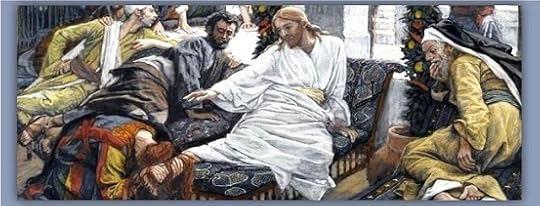Carl E. Olson's Blog, page 95
May 24, 2014
The Pope, The Patriarch, and True Ecumenism

Pope Paul VI and Ecumenical Patriarch Athenagoras attend a prayer service in Jerusalem in January 1964. Pope Francis will meet Patriarch Ecumenical Patriarch Bartholomew May 25 during his three-day visit to the Holy Land. The ecumenical session will mark the 50th anniversary of a 1964 meeting between Pope Paul VI and Ecumenical Patriarch Athenagoras. (CNS photo/Giancarlo Giuliani, Catholic Press Photo)
The Pope, The Patriarch, and True Ecumenism | Dr. Adam A. J. DeVille | Catholic World Report
Seven things that true ecumenism, which is rooted in the prayer and desire of Jesus Christ, is not
With the pope of Rome and the patriarch of Constantinople going to Jerusalem this weekend, there is naturally a great deal of conversation and consideration of where Orthodox and Catholic Christians have been and where we might be going. I have discussed some of this elsewhere. Here, however, I want to do something different, following a theological method beloved of many in the Christian East, as well as many Western mystics (St. John of the Cross comes to mind), namely the apophatic or “negative” way. I wish, in other words, to explain what true ecumenism is not.
Let us thus proceed by ruling out seven false forms, or understandings, of Christian unity.
1) Ecumenism is not a Pan-Heresy: Some ignorant and hostile Orthodox bloggers are endlessly recycling the fact-free fantasy of “ecumenism as a pan-heresy.” This ludicrous notion—for which nobody anywhere has ever provided the slightest shred of logical and credible evidence—is used to stir up fear that if Catholics and Orthodox draw closer to one another, it can only mean that one side has destroyed all its truth-claims and given in to the other side. Ecumenism is presented as a zero-sum game; in the words of certain economists: you win, I lose.
If this were, indeed, what the ecumenical task involved, then we could have accomplished it generations, even many centuries, ago: I set a list of demands, and you simply give in to every one completely while, perhaps, scrupling in the mildest possible way about one or two of the least significant—just as the (largely Orthodox) Serbs did before the (largely Catholic) Habsburgs in July 1914.
But the fact that we are still divided should give the lie to this notion: no Catholic or Orthodox hierarch (or theologian) wants to see the other surrendered and lying prostrate before its own side, which is precisely why the search for unity takes so long and is so utterly painstaking. We do not seek the capitulation of the other and the diminution of the truth (the way of the world) but the conversion of ourselves to Christ (the kenotic way), and in so doing we shall discover the unity he demands (about which see #7 below).
2) Ecumenism is not the Pope and Patriarch alone:
May 22, 2014
Mother Dolores Hart: Guest Programmer on Turner Classic Movies
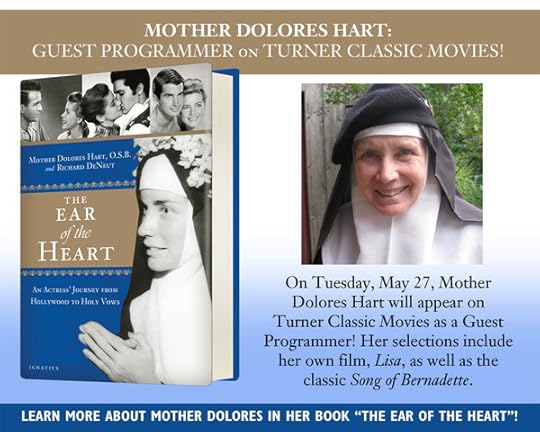
From the Turner Classic Movies website:
Rev. Mother Dolores Hart, a former film star who became a Roman Catholic nun, is the TCM Guest Programmer for May. Now Prioress of the Benedictine Abbey of Regina Laudis in Bethlehem, Conn., Hart made 10 films in six years in the 1950s and '60s, appearing with such costars as Elvis Presley (Loving You, 1957), Anna Magnani (Wild Is the Wind, 1957) and George Hamilton (Where the Boys Are, 1960).
Hart chooses Lisa (aka The Inspector, 1962), a film in which she starred as a survivor of the Auschwitz concentration camp during World War II. She remembers the film (a TCM premiere) as "a deep experience of the meaning of suffering." Laura (1944) is a reminder of Hart's childhood, when she gazed at Gene Tierney and thought, "I want to do that too!" She also has fond memories of The Song of Bernadette (1943) and agrees with host Robert Osborne that Jennifer Jones was "luminous" in that movie. Hart's final pick is The Rose Tattoo (1955), because Magnani, its star, "taught me what acting was about."
For more about Mother Hart's amazing life and her decision to become a nun, visit www.EarOfTheHeart.com.
In Canada, Pro-Lifers on the Brink

Left: Justin Pierre James Trudeau MP, leader of the Liberal Party of Canada, in 2009 (Wikipedia.com). Right: Rev. Stefano Penna (Twitter).
In Canada, Pro-Lifers on the Brink | Michael Coren | Catholic World Report
Catholic Church’s leaders in Canada have for too long appeared to prefer establishment acceptance to standing firm and loud on central issues
A letter from Canada, as it were. Those in the United States who assume that Canada is irrelevant should realize that the social and moral policies of the country tend to move south rather quickly. In other words, what begins in Canada often spills over to the U.S. and is eventually embraced by Americans.
The abortion issue is particularly pertinent because many politicians on the American political left and within organized liberalism revere the Canadian model and want to replicate it. That model includes publicly funded abortion at any stage of a pregnancy. If a woman is under age and living at home, the medical authorities have no obligation to inform her parents—and may be prosecuted if they do so. To publicly question this now-established wisdom is to risk media and political crucifixion, and even the country’s Conservative Prime Minister, Stephen Harper, has said that he has no intention of reopening the abortion debate.
Until recently it looked as though it couldn’t get any worse. But we were wrong.
May 21, 2014
Fr. Robert Barron on Hans Urs von Balthasar (Part 1 of 2)
Word on Fire has recently posted a video (the first of two) of Fr. Robert Barron talking about the great Swiss theologian, Fr. Hans Urs von Balthasar. Fr. Barron discussed von Balthasar's life, his place in Catholic theology, and his friendships with St. John Paul II and Benedict XVI.
Over the years, Ignatius Press has been the leading translator and publisher, in the English-speaking world, of von Bathasar's works. Recent publications include Who Is a Christian? and Explorations in Theology, Vol. 5: Man Is Created. And this coming Fall, Ignatius Press will be publishing a new edition of von Balthasar's much discussed book, Dare We Hope "That All Men Be Saved"?
Here is Fr. Barron:
New: "YOUCAT Confirmation: Student Book"
Now available from Ignatius Press:
YOUCAT Confirmation: Student Book
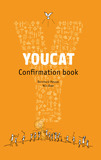
by Bernhard Meuser and Nils Baer
Written for the candidates in junior high and high school (or older), this YOUCAT Confirmation book provides in-depth preparation for receiving the Sacrament of Confirmation. Designed in the same popular format as the best-selling YOUCAT, this book has interesting, lively text on many spiritual topics and themes to help the student be well prepared to receive the Sacrament. It also includes many good questions throughout the book that youth ask about the faith, God, Jesus, the Church, etc., and the answers are cross referenced with either the Bible or with YOUCAT.
Among the topics covered are: Why the World is Broken, Jesus-More than a Mere Man, In Search of the Holy Spirit, Prayer-Staying in Touch with God, The Church, Eucharist, Confession, the Rite of Confirmation, and more. Like Youcat, the creative design includes many fun illustrations, color pictures, quotes from saints, popes and scripture, and the favorite “moving stick figures” at the bottom of each page.
A Teachers Book for this Confirmation book will be released in the Summer by Ignatius Press.
Customers Who Bought This Item Also Bought:
YOUCAT Study Guide - Paperback
YOUCAT - Paperback
Dayspring - Paperback
YOUCAT: Youth Prayer Book - Paperback
Pilgrim Fellowship of Faith - Paperback
Benedict XVI on Freedom in Obedience to the Truth: A Key for the New Evangelization
Mary Magdalene’s box of very precious ointment by James Tissot
Benedict XVI on Freedom in Obedience to the Truth: A Key for the New Evangelization | Dr. Matthew J. Ramage | HPR
… the more fundamental task … is to form human hearts, beginning with those who have already been evangelized and need to be “newly evangelized,” those who know something already, but are not living it; those who are showing up in the pews, but not really getting it.
The broad strokes of this reflection germinated while I was watching a news program last winter. We were visiting my parents in Illinois, and as I passed by the TV, I happened to overhear a self-professed Catholic political strategist misrepresenting the U.S. bishops on the subject of the HHS mandate. At the end of the interview, it was pointed out to the woman that “your own bishops don’t agree with you.” In reply, she smirked and sarcastically laughed, “Well, the bishops, that’s a whole other issue.” 1 Anyone watching this interview could tell that this individual, despite claiming to be Catholic, had little respect for the authority of the Catholic hierarchy. In her view, the bishops are just a bunch of old men who are out of touch with reality and refusing to get with the times. Regrettably, this attitude is enshrined in the words and deeds of many well-known Catholic media figures and politicians. Even worse, it colors the way countless Catholics today perceive reality.
As Catholic pastors have had ample occasion to observe, the above mentioned mentality has emerged repeatedly and all too evidently in the wake of the last papal conclave. Both in the media and in my own ministry of evangelization, I have consistently seen a narrative that paints the pontificate of Francis, the “poor man’s pope,” as an opportunity to finally throw off the shackles of traditions and truth claims that have long held us back from true societal progress. Without even knowing it, many have adopted the Marxist analysis of the Church which Joseph Ratzinger spent so much of his career confronting. Marx’s fundamental law of history—the class struggle—shows itself, time and again, in efforts to set up the hierarchical Church in opposition to the laity, who seek emancipation from centuries of discrimination and abuse of power. 2 Not surprisingly, many who accept this Marxist interpretation follow its philosophy in expecting the new pontiff to eliminate all forms of “duality” in the Church, especially the distinctions among the sexes central to issues such as women’s ordination and gay marriage. I think this is a misinterpretation of Francis’ project, and it stands at odds with the priority of truth and tradition in the quest for freedom as taught in the Gospel. For the sake of brevity, this piece will develop an overview of the Church’s teaching concerning freedom, truth, and obedience in light of the thinker who has treated the issue most profoundly and prolifically: Pope Benedict XVI. Benedict offers a pointed diagnosis of our society’s problem in this area, and provides clear principles for how to address it within pastoral ministry and the New Evangelization.
The point of the above anecdote is to illustrate how deeply our culture stands at odds with the Gospel, and its liberating message, that authentic freedom comes, not from inventing our own ideas, or even deciding upon them democratically, but rather through loving submission to the truth that has been revealed to us through Christ’s Church.
Church and State in Ireland: Improved Relations or Deepened Hostilities?

Irish Prime Minister Enda Kenny receives Communion at St. Patrick's Cathedral in New York, during a St. Patrick's Day Mass at the cathedral March 17, 2014. (CNS photo/Gregory A. Shemitz)
Church and State in Ireland: Improved Relations or Deepened Hostilities? | Michael Kelly | CWR
The positive rhetorical of many political leaders is undermined by push against Catholic schools, hospitals, and pro-life teachings
When the Irish Government announced in November 2011 that it would close the Embassy to the Vatican, it marked an all-time low in relations between the traditionally staunchly Catholic country and the Holy See.
It was a far cry from the time when Msgr. Giovanni Battista Montini (later Pope Paul VI) told Irish officials in 1946, “you are the most Catholic country in the world!”
But, now, less than three years after the closure, the Government has announced the appointment of a new ambassador who will shortly take up residence in Rome and present her credentials to Pope Francis. Emma Madigan will be responsible for getting relations between Ireland and the Vatican back on an even keel.
A new era?
So, does the opening of the embassy mark a new era of warmer relations between Church and State? The country’s Prime Minister, Enda Kenny, certainly thinks so. Speaking in Rome last month after attending the double canonization ceremony for Saints John XXIII and John Paul II, Mr. Kenny expressed his view that there now exists a “closer and healthier relationship between Church and State” following tensions over the handling of abuse allegations against priests and religious.
But, is Mr. Kenny’s view backed up by the evidence on the ground? Many dispute it. “This Government is incredibly hostile towards the Church,” says David Quinn, Director of the pro-religious freedom think-tank The Iona Institute.
Save 20%* on newly released title "Non-Negotiable" and related titles
Save 20%* on newly released title Non-Negotiable and related titles with the coupon code NNEG2014.
View this email in your browser
"This book is a must-read for every person of faith who understands that action is needed – now – if we ever hope to build
a free, just and humane society."
- Dr. Alveda King, Director of African-American Outreach, Priests for Life
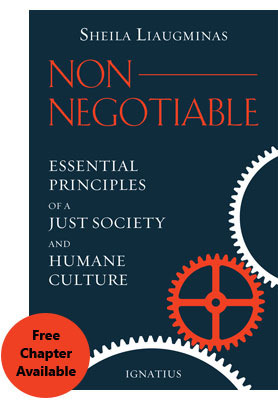
Non-Negotiable
Essential Principles of a Just Society
and Humane Culture
Sheila Liaugminas
Hardcover, $17.95 — eBook also available."Combining the passion of personal conscience and the convictions of reason and faith, Sheila Liaugminas analyzes conflicted points in our culture in the light of first principles. It's a good tool in skilled hands."
- Francis Cardinal George, O.M.I. Archbishop of Chicago
Learn More
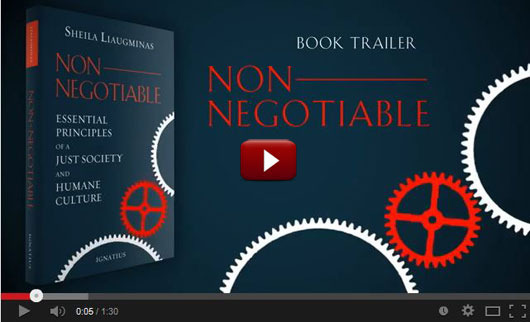
Don’t Miss Actress Turned Nun on TCM!
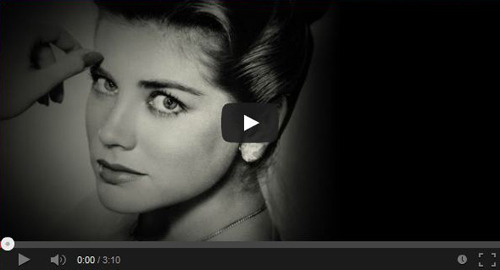
Robert Osborne will feature Mother Dolores Hart as his special guest on Turner Classic Movies, Tuesday, May 27, 8pm ET, to discuss her amazing journey from Hollywood to Holy Vows,
as told in her new biographic memoir, The Ear of the Heart .
Dolores Hart stunned Hollywood in 1963, when after ten highly successful feature films, she entered a contemplative monastery. Hart was a bright and beautiful college student when she made her film debut with Elvis Presley in Loving You. She also acted with other big stars such as Montgomery Clift, Anthony Quinn, and Myrna Loy.
She entered the Abbey of Regina Laudis in Bethlehem, CT., at the peak of her career, not to leave the glamorous world of acting she had dreamed of since childhood, but to answer a mysterious call she heard with the “ear of the heart”.
Be sure to hear her inspiring story on TCM on Tuesday, May 27, 8pm ET/ 5 pm PT.
Save 20%* on the enlightening titles below!
Simply enter the coupon code NNEG2014 at checkout
to take advantage of this great offer!
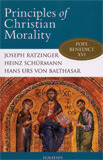
Principles of Christian Morality
Joseph Cardinal Ratzinger and Hans Urs von Balthasar
$9.95
eBook also available.
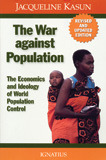
War Against Population
Jacqueline Kasun
$17.95
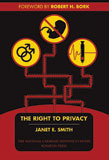
The Right to Privacy
Janet E Smith
$14.95
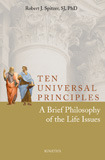
Ten Universal Principles
Fr. Robert Spitzer
$16.95
eBook and audio download also available.
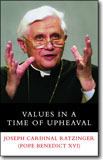
Values in a Time of Upheaval
Joseph Cardinal Ratzinger
$9.95
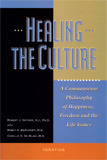
Healing the Culture
Fr. Robert Spitzer
$17.95
eBook also available.
*This offer is valid online only from May 20, 2014 until May 26, 2014 midnight EST.
Copyright © 2014 Ignatius Press, All rights reserved.



Forward
May 20, 2014
Now available: "Joseph Ratzinger Collected Works: Theology of the Liturgy"
New from Ignatius Press:
Joseph Ratzinger Collected Works: Theology of the Liturgy
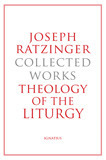
by Joseph Cardinal Ratzinger (Pope Emeritus Benedict XVI)
Hardcover | 700 pages
This major volume is a collection of the writings of Joseph Ratzinger (Pope Emeritus Benedict XVI) on the theology of the Liturgy of the Church, a subject of preeminence to him as a theologian, professor and spiritual writer. It brings together all his writings on the subject, short and long, giving his views on liturgical matters and questions over many years and from various perspectives.
He chose to have his writings on the Liturgy for the first volume published of his collected works (though listed as vol. 11) because, as he says in the Introduction: "The liturgy of the Church has been for me since my childhood the central reality of my life, and it became the center of my theological efforts. I chose fundamental theology as my field because I wanted first and foremost to examine thoroughly the question: Why do we believe? But also included from the beginning in this question was the other question of the right response to God and, thus, the question of the liturgy."
By starting with the theme of liturgy in this volume, Ratzinger wants to highlight God's primacy, the absolute precedence of the theme of God. Beginning with a focus on the liturgy, he said, tells us that "God is first". He quotes from the Rule of St. Benedict, "Nothing is to be preferred to the liturgy", as a way of ordering priorities for the life of the Church and of every individual. He says that the fundamental question of the man who begins to understand himself correctly is: How must I encounter God? Thus learning the right way of worshipping is the gift par excellence that is given to us by the faith.
The essential purpose of his writings on the liturgy is to place the liturgy in its larger context, which he presents in three concentric circles. First, the intrinsic interrelationship of Old and New Testament; without the connection to the Old Testament heritage, the Christian liturgy is incomprehensible. The second circle is the relationship to the religions of the world. The third circle is the cosmic character of the liturgy, which is more than the coming together of a circle of people: the liturgy is celebrated in the expanse of the cosmos, encompassing creation and history at the same time.
Joseph Ratzinger (Pope Benedict XVI) is widely recognized as one of the most brilliant theologians and spiritual leaders of our age. As Pope he authored the best-selling Jesus of Nazareth; and prior to his pontificate, he wrote many influential books that continue to remain important for the contemporary Church, such as Introduction to Christianity and The Spirit of the Liturgy.
The Danger of Soft Atheism
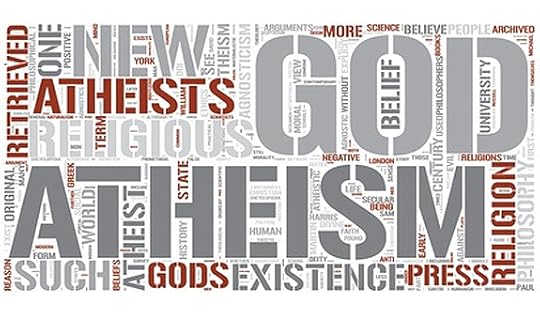
(Photo: © aihumnoi - Fotolia.com)
The Danger of Soft Atheism | Very Rev. Robert Barron | CWR Blog
Many atheists overlook the decisively important role that a religious tradition plays in the development and ratification of doctrine
A very instructive exchange between Gary Gutting, a philosophy professor at Notre Dame, and Philip Kitcher, a philosophy professor at Columbia, just appeared in the pages of The New York Times.
Kitcher describes himself as a proponent of “soft atheism,” which is to say an atheism distinct from the polemical variety espoused by Richard Dawkins and Christopher Hitchens. Unlike his harsher colleagues, Kitcher is willing to admit that religion can play an ethically useful role in a predominantly secular society. I won’t delve into this feature of Kitcher’s thought, for I have explored the Kantian reduction of religion to ethics elsewhere, but I would like to draw attention to one particular move made in this interview, since it shows, with remarkable clarity, one of the fundamental misunderstandings of religion common among atheists.
Prompted by Gutting, Kitcher admits that he finds all religious doctrine incredible. Pressed for an explanation of this rather extreme position, he points to the fact of the extraordinary plurality of religious doctrines: Christians, Jews, Hindus, Muslims, animists, etc. hold to radically different accounts of reality, the divine, human purpose, etc. And since all religions rely fundamentally on the same ground—some revelation offered to distant ancestors—there is no rational way to adjudicate these differences.
Indeed, the only real reason that I am a Christian, he would maintain, is that I was born to Christian parents who passed the founding stories onto me. If you, as a Jew or Muslim or Hindu, have different foundational stories, there is no reasonable way I can convince you or you can convince me. It’s just your cockamamie myth against my cockamamie myth.
Carl E. Olson's Blog
- Carl E. Olson's profile
- 20 followers


